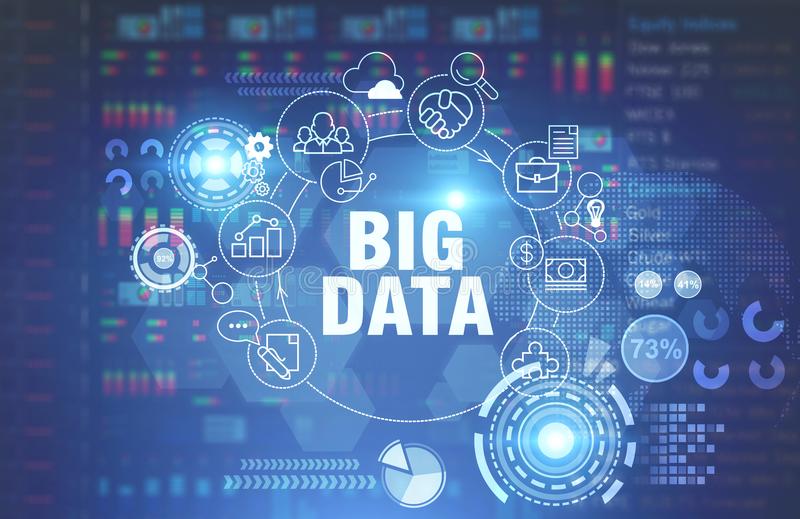When people hear the term Big Data, it often sounds like something complicated, technical, and reserved only for data scientists or engineers. In reality, Big Data is much closer to our daily lives than most of us realize. Every time you open a social media app, make an online purchase, or even stream a video, you are part of the massive ecosystem of Big Data. The amount of digital information created each second is staggering, and businesses, governments, and even individuals rely on it to make better decisions.
What makes Big Data unique
The concept of Big Data is often described using three main characteristics: volume, velocity, and variety. Volume refers to the sheer scale of information being generated. Think about billions of posts on social media, millions of online transactions, and endless streams of video content. Velocity highlights the speed at which data is created and shared in real time. Variety means the diverse types of information, from text and numbers to images, videos, and even sensor readings from smart devices.
Together, these characteristics make Big Data different from traditional datasets. Instead of simple spreadsheets, we are now talking about information so massive and complex that it requires advanced tools and technologies to process.
Big Data in business strategy
Companies across industries rely heavily on Big Data analytics to understand customer behavior and market trends. Online stores use it to suggest products that you might like based on your browsing history. Banks apply it to detect unusual transactions that could signal fraud. Even small businesses benefit from data-driven insights to plan promotions or improve customer service.
In the digital marketplace, making decisions without considering Big Data is like sailing without a compass. It allows organizations to see patterns that were once invisible, leading to smarter investments and more personalized customer experiences.
Healthcare powered by Big Data
One of the most impactful areas where Big Data is changing lives is healthcare. Hospitals and clinics collect enormous amounts of patient records, lab results, and medical imaging. By analyzing this information, doctors can identify disease trends, predict potential outbreaks, and even customize treatment plans for individual patients.
For example, wearable devices like smartwatches generate continuous health data such as heart rate, sleep patterns, and activity levels. This information feeds into Big Data systems that can alert both patients and doctors about possible health issues before they become serious.
The role of Big Data in entertainment
Have you ever wondered how streaming services always seem to know what you want to watch next? Platforms like Netflix and Spotify rely on Big Data algorithms to study your preferences. Every click, search, and skip creates a digital footprint. The more you use the service, the more accurate the recommendations become.
This personalization is possible because of Big Data analytics, which allows entertainment companies to not only keep audiences engaged but also predict trends in viewing habits. In turn, this shapes what kind of shows or music they produce in the future.
Education and learning with Big Data
In the field of education, Big Data is helping teachers and institutions design better learning experiences. Online learning platforms track how students interact with lessons, how long they spend on certain topics, and which areas they struggle with the most.
With this information, schools can adapt their teaching methods, provide additional support where needed, and even predict which students might need extra help before exams. Big Data in education is not about replacing teachers, but about giving them more tools to understand their students and improve outcomes.
Government and public services using Big Data
Governments worldwide are also turning to Big Data to improve public services. Traffic management systems analyze data from road sensors and GPS apps to reduce congestion. Smart cities use sensors to monitor air quality, energy usage, and waste management.
Law enforcement agencies rely on data analysis to identify crime hotspots and deploy resources more efficiently. Even during natural disasters, Big Data tools are used to track weather patterns, predict floods, and coordinate emergency responses.
Challenges behind Big Data
While Big Data brings endless opportunities, it also presents significant challenges. Privacy is one of the biggest concerns. With so much personal information being collected, people worry about how their data is used and who has access to it. Security is another challenge, since hackers constantly look for ways to exploit large datasets.
Another issue is data quality. Not all information is accurate or reliable, and analyzing poor-quality data can lead to wrong conclusions. Organizations must ensure that their Big Data systems are not only powerful but also ethical and responsible in how they handle information.
Tools and technologies for Big Data
Processing massive datasets requires more than just ordinary computers. This is where Big Data technologies come into play. Tools like Hadoop, Spark, and cloud computing platforms are designed to handle large-scale information quickly and efficiently.
These technologies allow businesses and researchers to analyze complex data, run predictive models, and generate insights in real time. The combination of artificial intelligence and Big Data analytics makes it possible to create smarter applications that learn and adapt continuously.
The future of Big Data
Looking ahead, Big Data will continue to shape how society functions. As more devices connect to the internet through the Internet of Things, the volume of information will grow exponentially. Self-driving cars, smart homes, and advanced healthcare systems will all rely on Big Data to operate safely and effectively.
In the business world, the demand for professionals skilled in Big Data management will keep increasing. More companies will seek to transform raw information into actionable insights, making it a valuable career path for many.
At the same time, ethical discussions about privacy, data ownership, and regulation will become even more important. The goal is to make sure that the benefits of Big Data are shared widely while minimizing risks for individuals and communities
